CHAPTER I.
您可以在百度里搜索“Pierre: Or, The Ambiguities 艾草文学(www.321553.xyz)”查找最新章节!
BOOK IV.
RETROSPECTIVE.
CHAPTER I.
IN their precise tracings-out and subtile causations, the strongest and fieriest emotions of life defy all analytical insight. We see the cloud, and feel its bo< but meteorology only idly essays a critical scrutiny as to how that cloud became charged, and how this bolt so stuns. The metaphysical writers confess, that the most impressive, sudden, and overwhelming event, as well as the minutest, is but the product of an infinite series of infinitely involved and untraceable foregoing occurrences. Just so with every motion of the heart. Why this cheek kindles with a noble enthusiasm; why that lip curls in scorn; these are things not wholly imputable to the immediate apparent cause, which is only one link in the chain; but to a long line of dependencies whose further part is lost in the mid-regions of the impalpable air.
Idle then would it be to attempt by any winding way so to penetrate into the heart, and memory, and inmost life, and nature of Pierre, as to show why it was that a piece of intelligence which, in the natural course of things, many amiable gentlemen, both young and old, have been known to receive with a momentary feeling of surprise, and then a little curiosity to know more, and at last an entire unconcern; idle would it be, to attempt to show how to Pierre it rolled down on his soul like melted lava, and left so deep a deposit of desolation, that all his subsequent endeavors never restored the original temples to the soil, nor all his culture completely revived its buried bloom.
But some random hints may suffice to deprive a little of its strangeness, that tumultuous mood, into which so small a note had thrown him.
There had long stood a shrine in the fresh-foliaged heart of Pierre, up to which he ascended by many tableted steps of remembrance; and around which annually he had hung fresh wreaths of a sweet and holy affection. Made one green bower of at last, by such successive votive offerings of his being; this shrine seemed, and was indeed, a place for the celebration of a chastened joy, rather than for any melancholy rites. But though thus mantled, and tangled with garlands, this shrine was of marble—a niched pillar, deemed solid and eternal, and from whose top radiated all those innumerable sculptured scrolls and branches, which supported the entire one-pillared temple of his moral life; as in some beautiful gothic oratories, one central pillar, trunk-like, upholds the roof. In this shrine, in this niche of this pillar, stood the perfect marble form of his departed father; without blemish, unclouded, snow-white, and serene; Pierre's fond personification of perfect human goodness and virtue. Before this shrine, Pierre poured out the fullness of all young life's most reverential thoughts and beliefs. Not to God had Pierre ever gone in his heart, unless by ascending the steps of that shrine, and so making it the vestibule of his abstractest religion.
Blessed and glorified in his tomb beyond Prince Mausolus is that mortal sire, who, after an honorable, pure course of life, dies, and is buried, as in a choice fountain, in the filial breast of a tender-hearted and intellectually appreciative child. For at that period, the Solomonic insights have not poured their turbid tributaries into the pure-flowing well of the childish life. Rare preservative virtue, too, have those heavenly waters. Thrown into that fountain, all sweet recollections become marbleized; so that things which in themselves were evanescent, thus became unchangeable and eternal. So, some rare waters in Derbyshire will petrify birds'-nests. But if fate preserves the father to a later time, too often the filial obsequies are less profound; the canonization less ethereal. The eye-expanded boy perceives, or vaguely thinks he perceives, slight specks and flaws in the character he once so wholly reverenced.
When Pierre was twelve years old, his father had died, leaving behind him, in the general voice of the world, a marked reputation as a gentleman and a Christian; in the heart of his wife, a green memory of many healthy days of unclouded and joyful wedded life, and in the inmost soul of Pierre, the impression of a bodily form of rare manly beauty and benignity, only rivaled by the supposed perfect mould in which his virtuous heart had been cast. Of pensive evenings, by the wide winter fire, or in summer, in the southern piazza, when that mystical night-silence so peculiar to the country would summon up in the minds of Pierre and his mother, long trains of the images of the past; leading all that spiritual procession, majestically and holily walked the venerated form of the departed husband and father. Then their talk would be reminiscent and serious, but sweet; and again, and again, still deep and deeper, was stamped in Pierre's soul the cherished conceit, that his virtuous father, so beautiful on earth, was now uncorruptibly sainted in heaven. So choicely, and in some degree, secludedly nurtured, Pierre, though now arrived at the age of nineteen, had never yet become so thoroughly initiated into that darker, though truer aspect of things, which an entire residence in the city from the earliest period of life, almost inevitably engraves upon the mind of any keenly observant and reflective youth of Pierre's present years. So that up to this period, in his breast, all remained as it had been; and to Pierre, his father's shrine seemed spotless, and still new as the marble of the tomb of him of Arimathea.
Judge, then, how all-desolating and withering the blast, that for Pierre, in one night, stripped his holiest shrine of all over-laid bloom, and buried the mild statue of the saint beneath the prostrated ruins of the soul's temple itself. Pierre: Or, The Ambiguities




